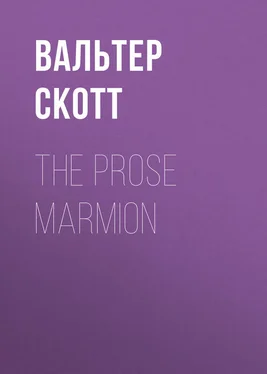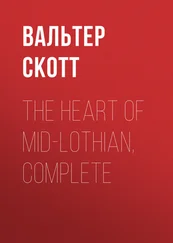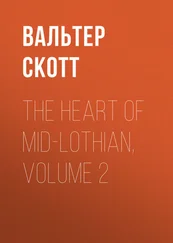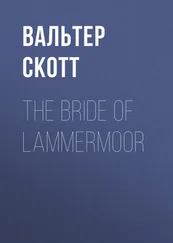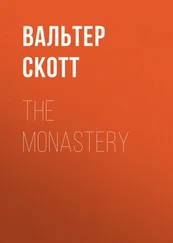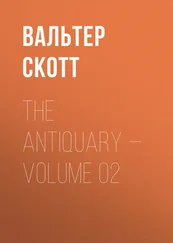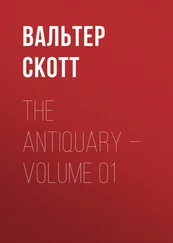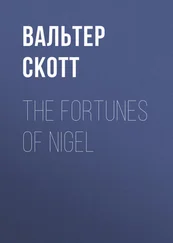Вальтер Скотт - The Prose Marmion
Здесь есть возможность читать онлайн «Вальтер Скотт - The Prose Marmion» — ознакомительный отрывок электронной книги совершенно бесплатно, а после прочтения отрывка купить полную версию. В некоторых случаях можно слушать аудио, скачать через торрент в формате fb2 и присутствует краткое содержание. Жанр: foreign_antique, foreign_prose, на английском языке. Описание произведения, (предисловие) а так же отзывы посетителей доступны на портале библиотеки ЛибКат.
- Название:The Prose Marmion
- Автор:
- Жанр:
- Год:неизвестен
- ISBN:нет данных
- Рейтинг книги:5 / 5. Голосов: 1
-
Избранное:Добавить в избранное
- Отзывы:
-
Ваша оценка:
- 100
- 1
- 2
- 3
- 4
- 5
The Prose Marmion: краткое содержание, описание и аннотация
Предлагаем к чтению аннотацию, описание, краткое содержание или предисловие (зависит от того, что написал сам автор книги «The Prose Marmion»). Если вы не нашли необходимую информацию о книге — напишите в комментариях, мы постараемся отыскать её.
The Prose Marmion — читать онлайн ознакомительный отрывок
Ниже представлен текст книги, разбитый по страницам. Система сохранения места последней прочитанной страницы, позволяет с удобством читать онлайн бесплатно книгу «The Prose Marmion», без необходимости каждый раз заново искать на чём Вы остановились. Поставьте закладку, и сможете в любой момент перейти на страницу, на которой закончили чтение.
Интервал:
Закладка:
Sara Davis Jenkins
The Prose Marmion A Tale of the Scottish Border
INTRODUCTION
Sir Walter Scott, poet and novelist, was born in Edinburgh, Scotland, five years before the Declaration of Independence in America. Unlike most little Scotch boys, he was not sturdy and robust, and in his second year, a lameness appeared that never entirely left him. Being frail and delicate, he received the most tender care from parents and grandparents. Five consecutive years of his life, from the age of three to the age of eight, were spent on his grandfather's farm at Sandyknow. At the end of this period, he returned to Edinburgh greatly improved in health, and soon after, entered the high school, where he remained four years. A course at the university followed the high school, but Scott never gained distinction as a scholar. He loved romances, old plays, travels, and poetry too well, ever to become distinguished in philosophy, mathematics, or the dry study of dead languages.
In his early years, he had formed a taste for ballad literature, which very significantly influenced, if it did not wholly determine, the character of his writings. The historical incidents upon which the ballads were founded, their traditional legends, affected him profoundly, and he wished to become at once a poet of chivalry, a writer of romance. His father, however, had other plans for his son, and the lad was made a lawyer's apprentice in the father's office. Continuing, as recreation, his reading, he gave six years to the study of law, being admitted to the bar when only twenty-one. For years, he cultivated literature as a relaxation from business.
At the age of twenty-six he married, and about this time accepted the office of deputy sheriff of Selkirkshire, largely moved to do so by his unwillingness to rely upon his pen for support. Nine years later, 1806, through family influence he was appointed, at a good salary, to one of the chief clerkships in the Scottish court of sessions. The fulfillment of his long-cherished desire of abandoning his labors as an advocate, in order to devote himself to literature, was now at hand. He had already delighted the public by various early literary efforts, the most important being the "Minstrelsy of the Scottish Border," parts of which had occupied him since childhood. This was followed by "Sir Tristrem" and the "Lay of the Last Minstrel." Scott was now enrolled among the poets of the day, and while never neglecting the duties of office, he entered upon his literary career with unflagging industry. "Marmion," "The Lady of the Lake," "Don Roderick," and "Rokeby" reflected his romantic fervor.
Lord Byron now had entered the field of letters, and Scott, conscious of the power of his rival, determined to seek fame in other than poetic paths. This determination produced "Waverly," whose success gave birth to Scott's desire to be numbered among the landed gentry of the country. Under the influence of this passion, the novels now associated with his name followed with startling rapidity, and their growth developed in the author an unwillingness to be known as a penman writing for fortune. Literary fame was less dear to him than the upbuilding of a family name. The novels went for a time fatherless, but the baronial mansion, still one of the most famous shrines of the curious, grew into the stately proportions of Abbotsford.
In 1820. George IV. conferred upon Scott the baronetcy, dearer than all the plaudits of the public. But
"Giddy chance never bears,
That mortal bliss shall last for years,"
and the failure of banker and of publisher disclosed that the landed baronet had been a silent partner in the house of his printer for a quarter of a century, for whose debts Scott was liable to the extent of one hundred thousand pounds and to his bankers for enough more to make the entire debt one hundred fifty thousand pounds. Unappalled by the loss, Scott refused all offers of release from his creditors, and began to pay the debt by means of his pen, determined to preserve Abbotsford to his children's children. At a dinner given in 1827, he threw off all disguise, and acknowledged the authorship of the Waverly novels.
His great exertions brought on paralysis. A visit to Italy failed to improve his condition, and he returned to die on the banks of the Tweed, and to be laid at rest in Dreyburg Abbey. He had paid one hundred thousand pounds of the debt, and the publishers of his works had sufficient confidence in their sale to advance the remaining fifty thousand pounds, the estate thus being left free of encumbrance.
Of his four children, two sons and two daughters, none left male issue. A grandchild, the wife of Robert Hope, was permitted by Parliament to assume the name of Scott, and her son Walter, at the age of twenty-one, was knighted by Queen Victoria.
Edinburgh has erected to his memory a most graceful monument, and Westminster Abbey a memorial. Visitors, under certain limitations, are permitted to visit the mansion, to see the enchanted library, and the famous study, to stray about the grounds where the famous writer spent the happiest, as well as the saddest, years of his life.
CHAPTER I
In all the border country that lies between England and Scotland, no castle stands more fair than Norham. Fast by its rock-ribbed walls flows the noble Tweed, and on its battled towers frown the hills of Cheviot.
Day was dying, St. George's banner, broad and gay, hung in the evening breeze that scarce had power to wave it o'er the keep. Warriors on the turrets were moving across the sky like giants, their armor flashing back the gleam of the setting sun, when a horseman dashed forward, spurred on his proud steed, and blew his bugle before the dark archway of the castle. The warder, knowing well the horn he heard, hastened from the wall and warned the captain of the guard. At once was given the command, "Make the entrance free! Let every minstrel, every herald, every squire, prepare to receive Lord Marmion, who waits below!" The iron-studded gate was unbarred, the portcullis raised, the drawbridge dropped, and proudly across it, stepped a red roan charger, bearing the noble guest.
Lord Marmion was a stalwart knight, whose visage told of many a battle. The scar on his brown cheek spoke of Bosworth Field, and the fire that burned in his eye showed a spirit still proud. The lines of care on his brow, and the threads of silver in his black curling hair, spoke less of age than of toil. The square-turned joints, the evident strength of body and limb, bespoke not a carpet-knight, but a grim champion. From head to foot, he was clad in mail of Milan steel. His helmet of embossed gold hung at the saddle-bow. A falcon hovered in the crest, and soared on the azure field of the noble lord's shield, above the motto, "Who checks at me, to death is dight!"
The horse was as richly clad as its rider. The reins were embroidered in blue, and ribbons of the same color decked the arched neck and mane. The housings were of blue trapped with gold.
Behind the leader, rode gallant squires of noble name. Though still a squire, each had well earned knighthood. Each could tame a war horse, draw a bow, wield a sword, dance in the hall, carve at the board, frame love ditties, and sing them to fair ladies.
Next in the train, came four men-at-arms: two carried halbert, bill, axe, and lance; a third led the sumpter mules and the ambling palfrey, which served to bear Lord Marmion when he wished to relieve his battle steed; the most trusty of the four held on high the pennon, furled in its glossy blue streamers. Last were twenty yeomen, two and two, in blue jerkins, black hose, and wearing falcons embroidered on each breast. At their belts hung quivers, and in their hands were boar-spears, tough and strong. They knew the art of hunting by lake or in wood, could bend a six-foot bow, or, at the behest of their lord, send far the cloth-yard spear.
Читать дальшеИнтервал:
Закладка:
Похожие книги на «The Prose Marmion»
Представляем Вашему вниманию похожие книги на «The Prose Marmion» списком для выбора. Мы отобрали схожую по названию и смыслу литературу в надежде предоставить читателям больше вариантов отыскать новые, интересные, ещё непрочитанные произведения.
Обсуждение, отзывы о книге «The Prose Marmion» и просто собственные мнения читателей. Оставьте ваши комментарии, напишите, что Вы думаете о произведении, его смысле или главных героях. Укажите что конкретно понравилось, а что нет, и почему Вы так считаете.
